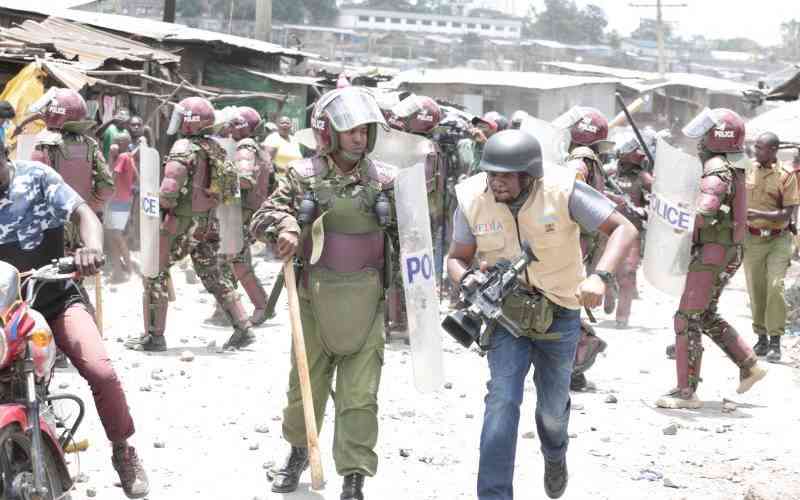
Let us face it, journalists and media practitioners in Kenya have such a great influence on our public affairs that it will be foolhardy not to acknowledge the same. The recent weeks in our country have been very distressing for members of the Fourth Estate. The brutal terror that has been meted out on the journalists while covering the weekly demonstrations in Nairobi, Kisumu and Migori deserves condemnation.
Years gone by, journalists rightly protested persistent attacks against them and the apparent muzzling of their right to free expression. In response to what was then perceived as continuous harassment, threats and assaults directed towards them as individuals and to their noble profession, they peaceably downed their tools and demanded that their rights to do their work be respected. During their 2016 peaceful and quiet demonstration in major cities and towns in the country, their clarion call was, "Journalism is a profession and not a crime". The echoes from the past are once again playing out and simmering, if the physical and emotional hurt the journalists have experienced covering the twice weekly demonstrations is anything to go by.